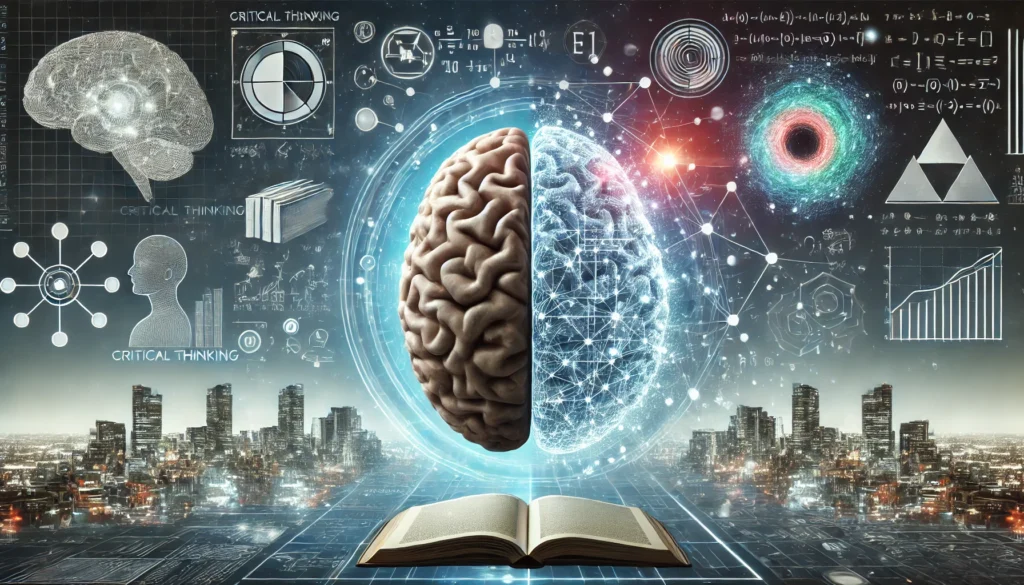Strategies along with challenges exist to develop critical thinking capabilities which serve as fundamental elements for future leadership development
Students require critical thinking as an essential education and leadership skill because it allows them to both evaluate problems and find effective solutions. Educators implement the Paul-Elder framework to facilitate training in historical thinking as well as critical reasoning development. Future leaders gain capacity to handle complex real-world challenges when educational institutions develop student interests through idea synthesis.
Critical Thinking in Education: Defining Its Role in Leadership Development
Students who possess strong critical thinking abilities develop exceptional abilities for problem evaluation along with outcome-based problem-solving. Cognitive thinking extends past problem-solving since it demands combination of logical reasoning with creativity alongside making decisions supported by facts. Knowledge institutions should prioritize critical thinking instruction because it serves as an important competency for students to handle sophisticated issues. Students who develop strong thinking skills transition to independent learning status and excel as decision-makers through which they become ready for future scenarios requiring logical reasoning and adaptive approaches.
its judge reality with sound reasoning abilities which will serve them as future leadership positions. Through critical thinking education students obtain clear self-assurance to strategically tackle problems while demonstrating effective idea presentation. Critical thinking education integration produces adaptable students who become agents of positive societal change through innovative educational approaches. Education development requires critical thinking preparation among students because they need these skills to excel in leadership positions across diverse global worlds.
The Power of Critical Thinking: Enhancing Creativity, Innovation, and Communication
The contemporary educational landscape depends on critical thinking because it moves beyond repetition to help students analyze apply and evaluate their knowledge. Critical thinking combines three essential elements including reasoning activities alongside reflection processes and logical judgment functions as defined by the Council for Excellence in Critical Thinking. The teaching method of critical thinking helps students solve problems as they achieve deep knowledge of subjects rather than memorizing basic facts without grasping their meaning.
The development of personal thoughts through thinking produces creative solutions and innovative thinking. Students who use this approach combine different concepts together to produce distinct original solutions. Educating oneself about the learning process enables adaptation to quick changes occurring in modern society. Educational institutions need to make this a priority since students require it to succeed in flexible work environments that need flexible problem solvers.
The capability to communicate with clarity results from critical thinking since this mental process helps people effectively share their thoughts. Reasoning effectiveness strengthens discussion participation as well as debate and composition abilities while providing logical defense abilities. Critical defines itself as a process which requires awareness of self and analysis to develop effective thinking capabilities through interpretation and critique and clear articulation. The emphasis on critical thinking develops students who have confidence, articulate ability and innovative potential.

The Importance of Critical Thinking: Creativity, Innovation, and Effective Communication
Education demands critical thinking beyond rote memorization because it allowsstudents to develop deep understanding along with logical judgment skills. As per the Council for Excellence in Thinking actual learning requires rational thought alongside analytical skills and application abilities. Students who focus on their thinking patterns develop problem-solving competencies through which they become ready for real-world situations that depend on adaptable responses and creative action and independent choices.
Both creativity improvement and communication quality improvement stem from understanding one’s thought methods and mastering efficient information synthesis. The descriptions of thinking establish its fundamental purpose as innovation promotion along with the development of distinct and clear idea communication methods. Students who participate in analytical discussions develop better reasoning abilities which leads to clear and persuasive communication in academic work along with professional and everyday circumstances.
Fostering Critical Thinking: Strategies, Challenges, and Its Role in Future Leadership
The development of this skills depends heavily on teachers who have responsibility for this educational process. With the Paul-Elder framework teachers enable students to develop analytical skills and perform evaluations and reason through classroom discussions and problem-based learning activities. The application of historical thinking in instruction enables students to analyze multiple viewpoints while creating sound judgments and makes them ready to handle advanced real-life problems.
Although its plays a vital role in education there exist numerous obstacles to its development. Traditional memorization methods combined with scarce learning resources and unwillingness toward educational reform prevent students from developing their intellectual capacities. These learning obstacles can be addressed by developing students’ curiosity while having open discussion opportunities and implementing active learning tactics. According to the Paul-Elder model reflective thinking enables students to solve problems on their own while applying logical reasoning techniques.
The capability to make decisions and solve problems functions as the basis for future leadership development. Leaders need to evaluate situations while making sense of diverse information before effectively sharing their concepts to others. Education develops the ability to think critically which prepares people to face world changes while keeping both self-assurance and flexibility. A generation of leaders with solution-driven capabilities alongside ethical decision-making and innovative thinking can be achieved through critical thinking prioritization.


